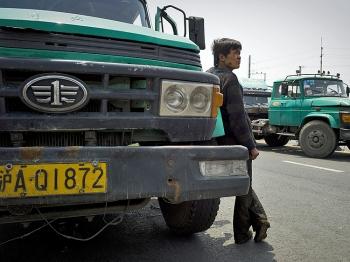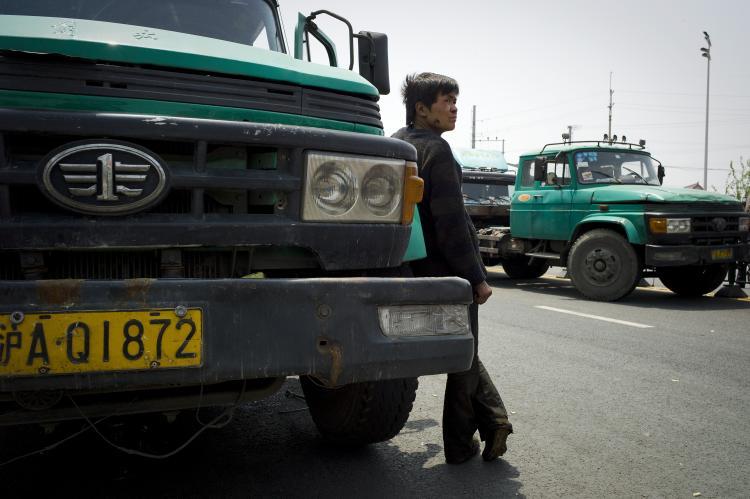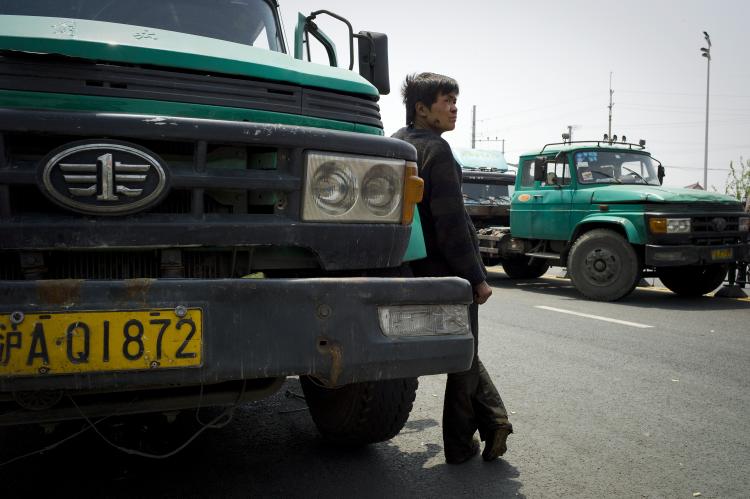Exorbitant Highway Tolls Hurt China’s Economy
Truckers barely break even and vegetables are rotting in the fields due to China’s high transportation costs.

A Chinese mechanic waits by a container truck to be repaired near a cargo terminal in Shanghai on April 25. Philippe Lopez/AFP/Getty Images
|Updated:





